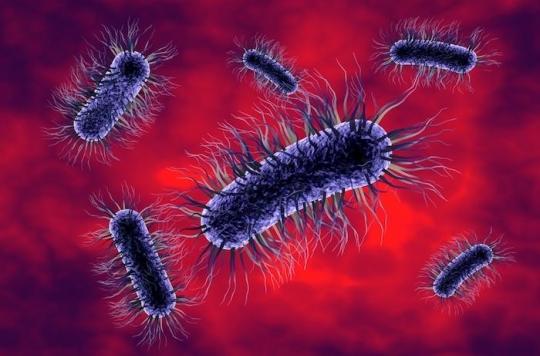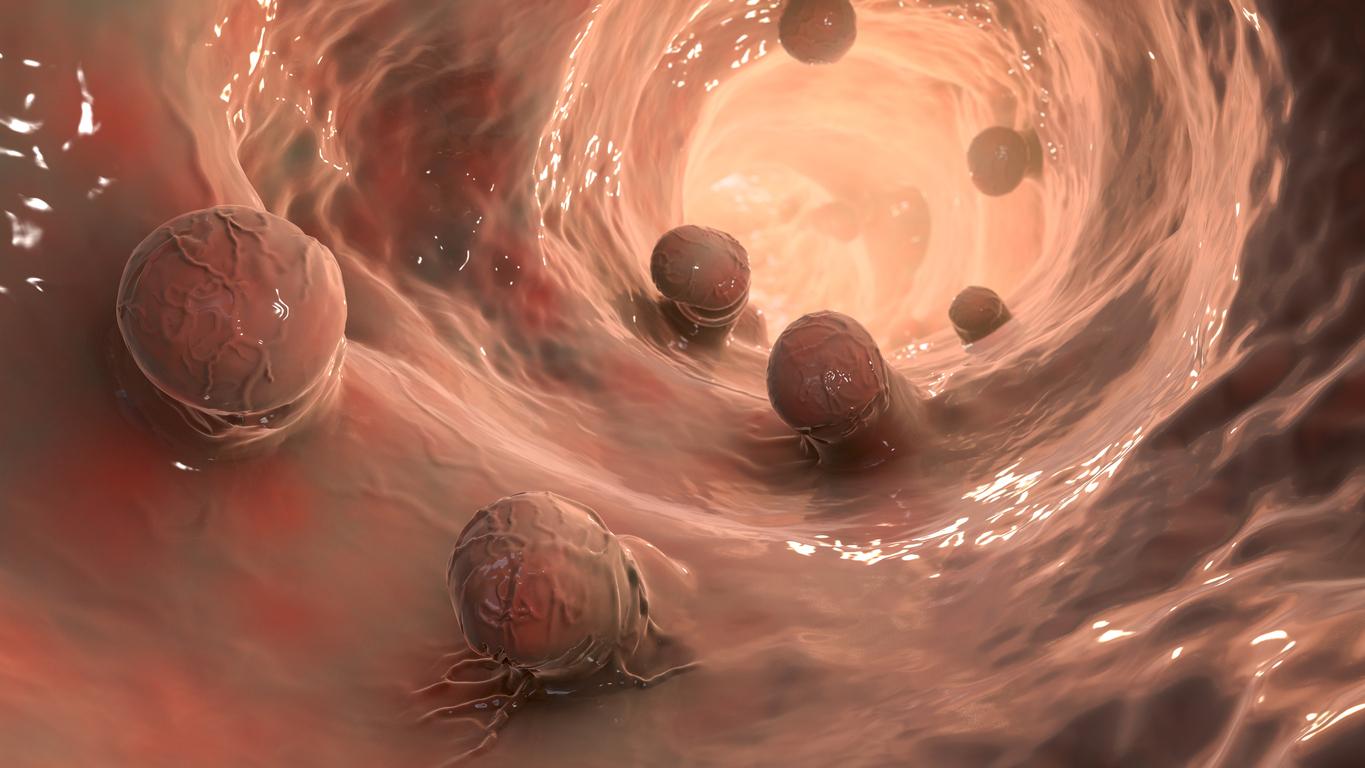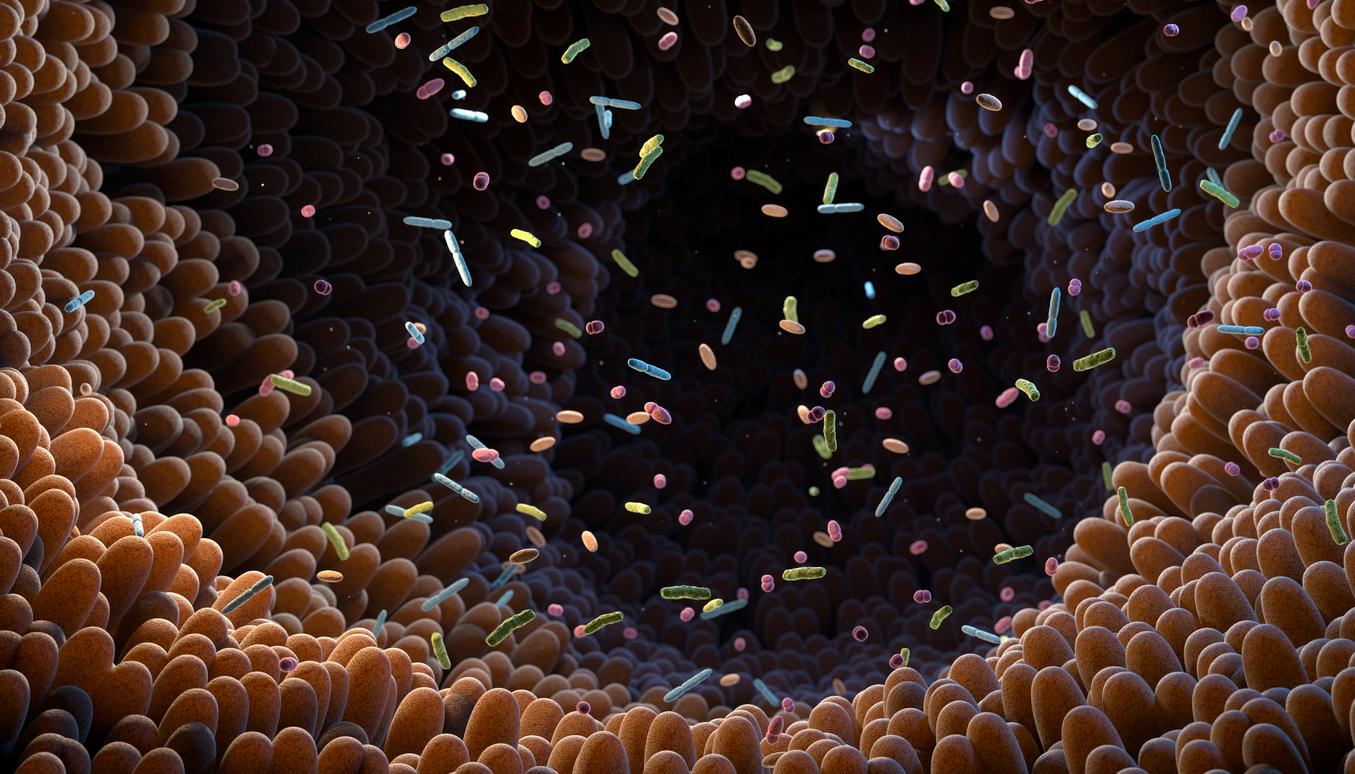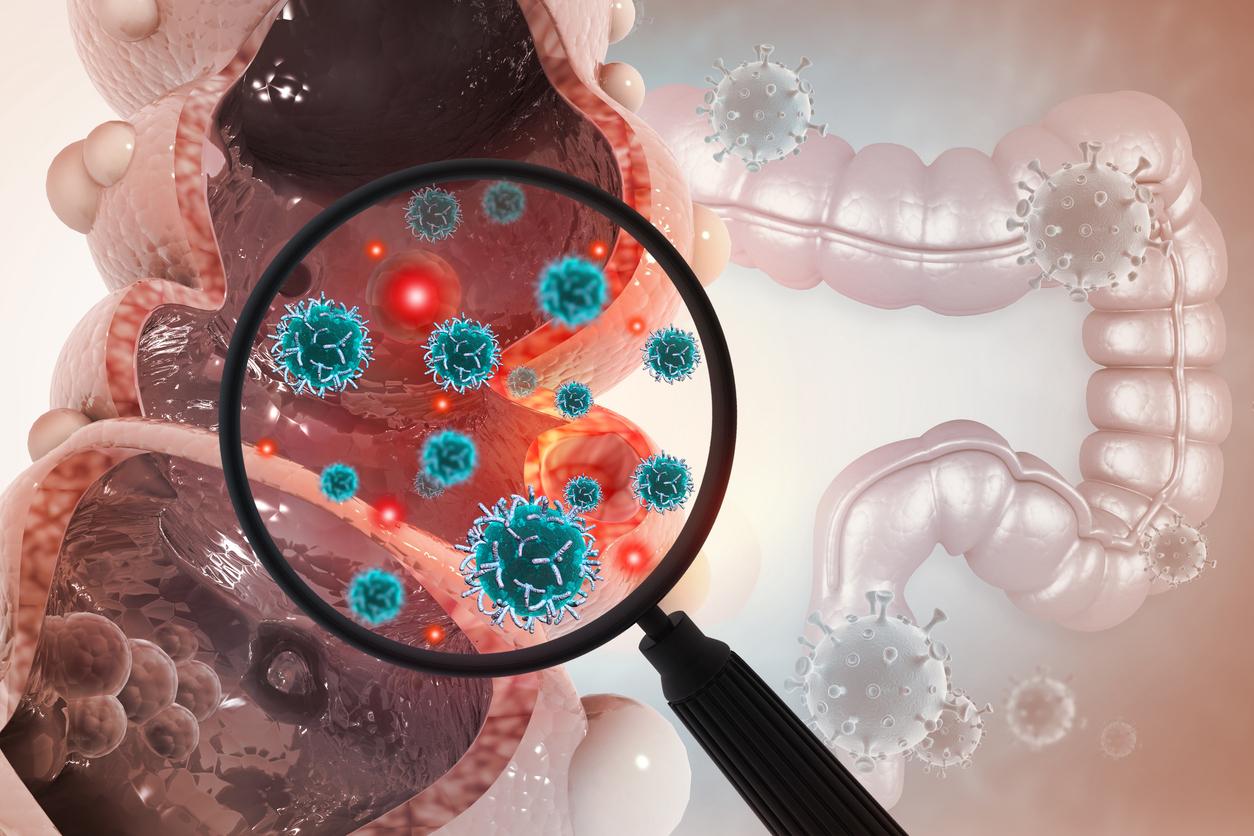Scientists have identified a particular association of 2 bacteria, Escherichia Coli and Bacteroides fragilis, which together increase the risk of colon cancer.

Through to a series of experiences, a research team has identified two bacteria linked to colon cancer. Each type of bacteria is not itself bad for the health of the large intestine, but their combination breaks down the mucus layer that protects it and is responsible for inflammation of the lining of the intestine.
Christine M. Dejea and her colleagues began by analyzing tissue samples from patients with a genetic disease that puts them at an increased risk of developing precancerous polyps in the colon, “familial adenomatous polyposis” (FAP). Unlike samples from patients with isolated polyps, samples of mucosa from patients with familial adenomatous polyposis contained colonies of bacteria in which Escherichia Coli and Bacteroides fragilis are particularly represented. A result confirmed by an analysis on a larger sample of patients with familial adenomatous polyposis.
Act from an early age
When the researchers implanted these bacteria in an experimental model of mice with familial adenomatous polyposis, they found that mice that received only one of these 2 bacteria developed few tumors. Conversely, mice which received the two bacterial species together were significantly more likely to develop invasive cancer and die.
Continuing their series of experiments, Dr. Dejea and his team found that Bacteroides fragilis altered the microenvironment of the intestine by depleting mucus and inducing an inflammatory response. All of this would allow Escherichia Coli to contaminate the lining of the intestine and create chronic inflammation there. Based on these results, the authors suggest that early removal of these bacteria from the lining of patients with Escherichia Coli may be more beneficial than the simple anti-inflammatory treatment that is required in this condition to reduce the risk of degeneration and cancer.
This study adds to the number of studies that demonstrate the importance of a good balance of the intestinal flora, the intestinal microbiota ”, and therefore to develop nutritional approaches to maintain this balance or to restore it.

.















